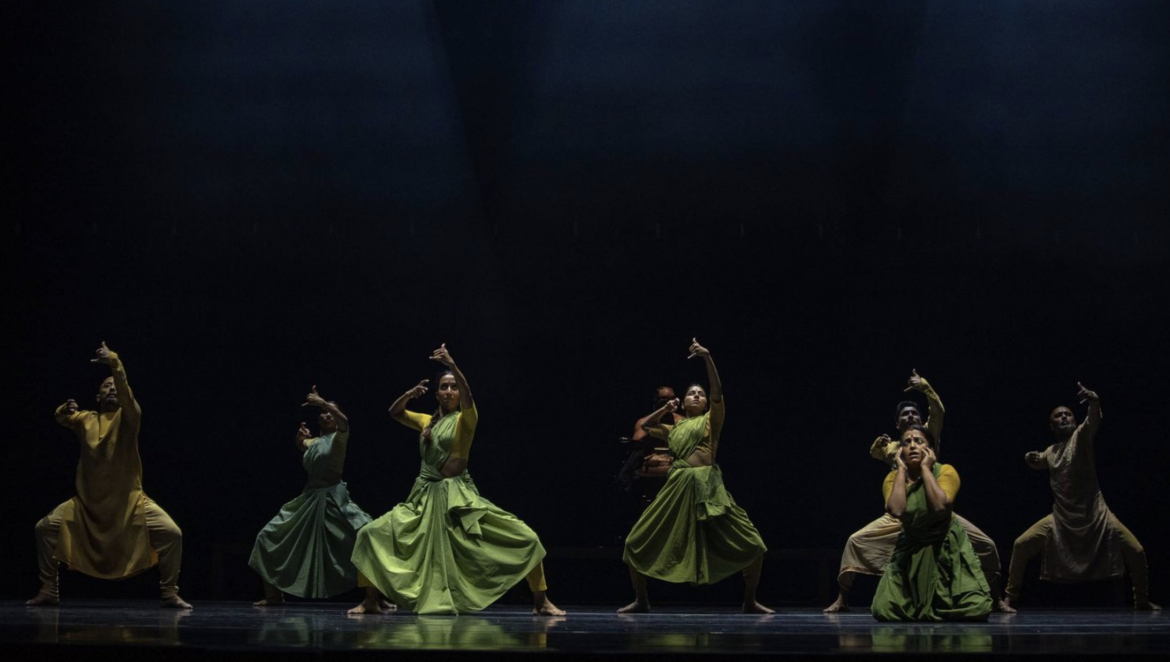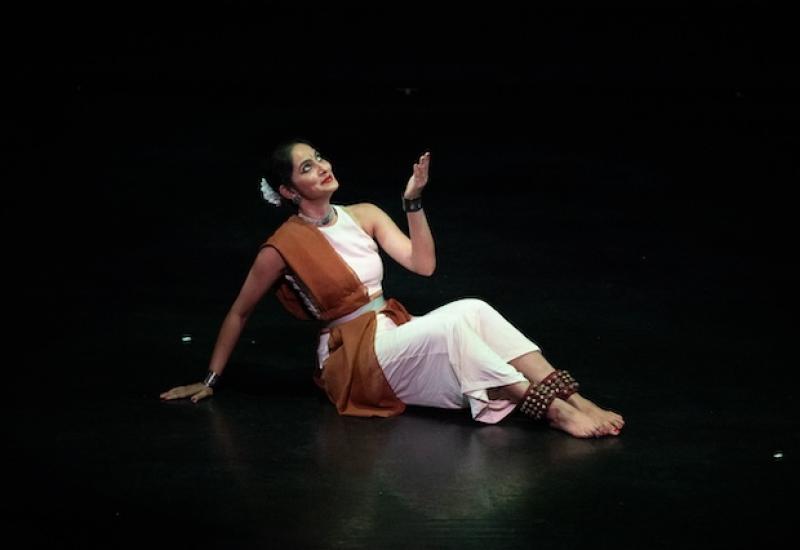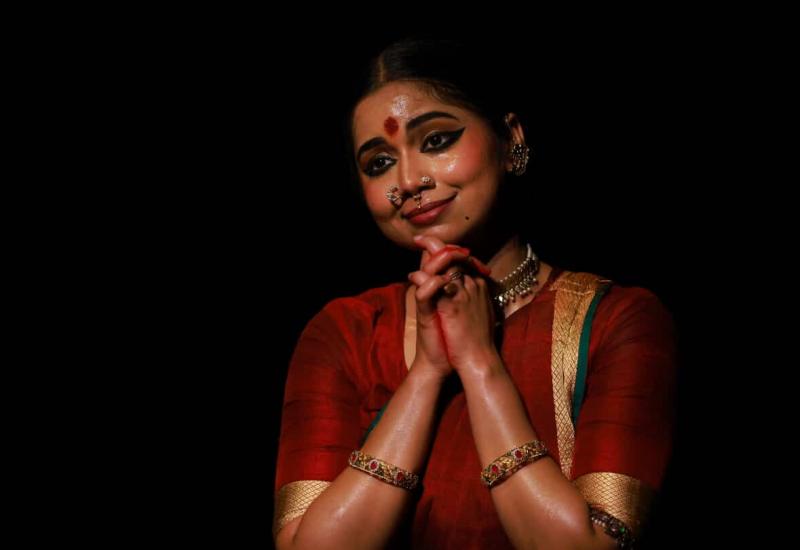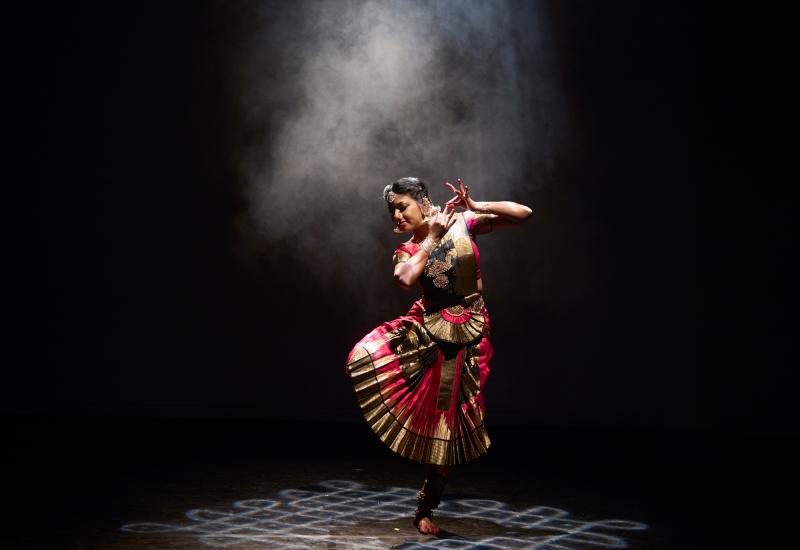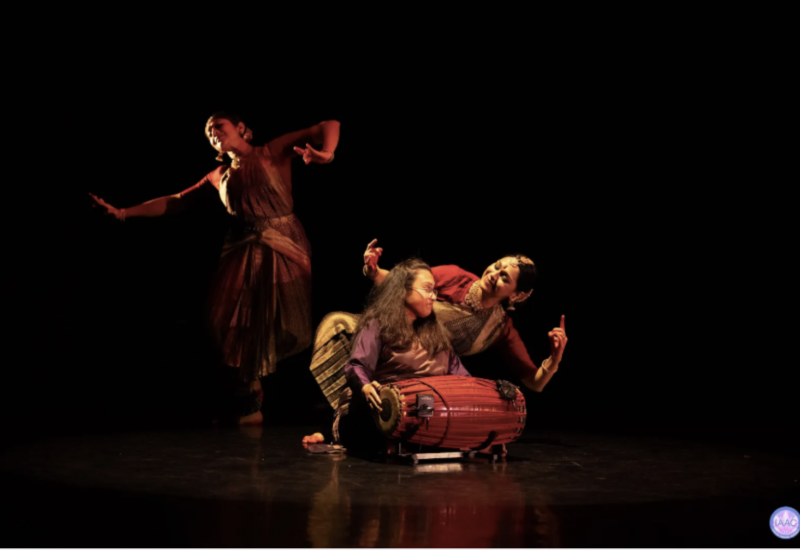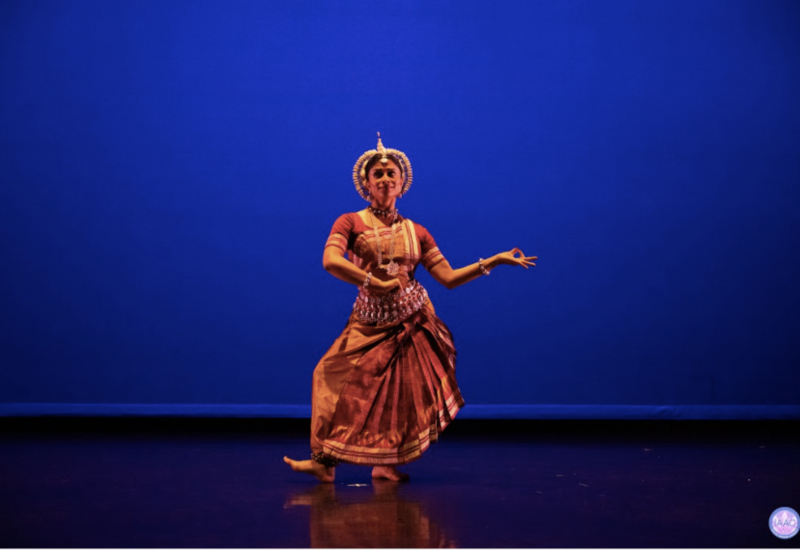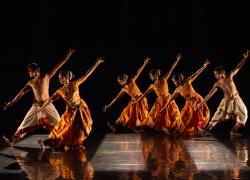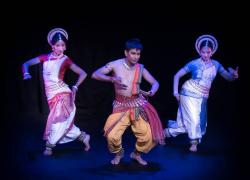GIGENIS: The generation of the Earth
GIGENIS: The generation of the Earth
by Akram Khan & Guests
November 20, 2024
Sadler's Wells, London
Reviewed by Donald Hutera
Premièred in France at the end of August, British dance superstar Akram Khan's latest creation is being hailed as a return to his classical Indian roots. Khan himself recognises that GIGENIS, in which he performs (for the first time in four years) collaboratively alongside six other soloists, is a means of acknowledging 'my past which has always informed my present.'
But the hour-long production also marks a return to form for Khan after recent, intermittently powerful – and what dance by him cannot be described as such? – but generally less-than-coherent efforts such as Outwitting the Devil, Creature (a mash-up of Woyzeck and Frankenstein commissioned by English National Ballet) and Jungle Book reimagined. Inspired by the Mahabharata, rather than being directly based upon a story or characters from that epic, his atmospheric new dance drama couples an admirably succinct narrative clarity with an eloquent kinetic force. It is, in short, a strongly shaped and cogent piece of work.
GIGENIS is on one level about the memories and experiences of a woman whose husband dies in wartime. They had two sons and, as we see, she will suffer other losses connected to them and their differing temperaments and aspirations as grown men. Drawing upon Khan's regard for the continued value and relevance of ancient myths and traditions, the 'plot' grows out of underlying themes of choice and change, aggression, grief and endurance and the ongoing cycle of life and death.
The show starts with a bang – several, in fact, measured but thunderously echoing drum beats that command us to sit up and take notice of what is about to unfold. The opening image is of a man (Mavin Khoo, Khan's longtime creative associate) kneeling before a woman (Kapila Venu, a redoubtable and nuanced practitioner of the Keralan theatre tradition kuttiyattam) who ceremonially places splayed, upright fingers upon his head. This finger motif becomes the work's key gestural through-line as, to my mind, a representation of spiritual essence.
What ensues is a series of scenes that slip across time, with Venu functioning as an 'earth mother' figure as well as an often participatory witness to events (courtship, birth and, again, death) that pertain both to her existence and, by implication, the complex, passionate and too often destructive ways of human society. At times other dancers - Sirikalyani Adkoli, Vijna Vasudevan and the especially gifted Mythili Prakash - effectively embody Venu's younger self. Renjith Babu rounds out the cast as the husband. Khan, meanwhile, is outstanding as the restless yet focused, innately needy and bellicose son. No less good is Khoo as his more level-headed and pacific brother. Each performer is worth mentioning. Despite their differing styles and backgrounds, together they comprise a gratifyingly cohesive ensemble.
An occasional female voice-over, in which the central character refers to her roles as wife, mother, lover, nurse and so on, comes in handy. When you can hear it. The music on the press night was unfortunately undermined by the overstated volume level of its soundtrack. Seven wonderful musicians and singers on platforms either side of the side of the stage delivered a selection of rhythmically-driven or lyrically melodic pieces. Another cavil: Zeynep Kepelki's lighting. Or lack of lighting. Moody? Maybe. But the under-illumination seems a disservice to what the show's promotional material describes as 'not just a performance but a profound statement.' I don't know that I'd go that far in pegging GIGENIS, but I left it not unimpressed.

